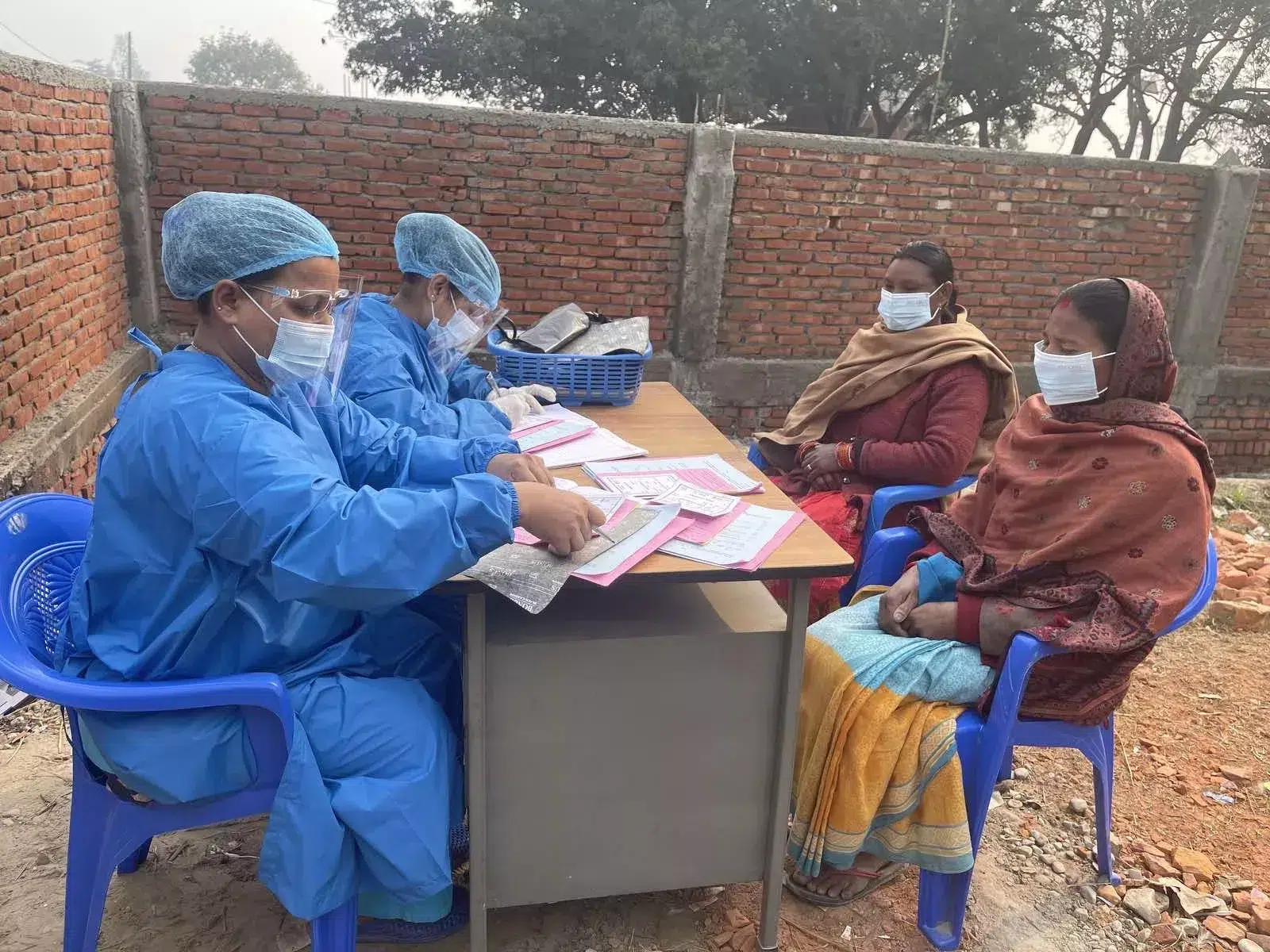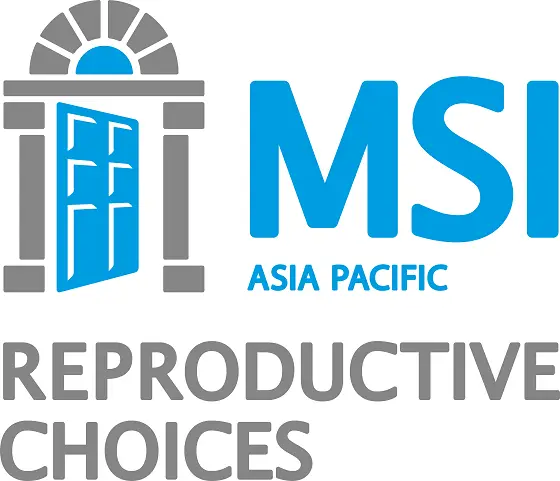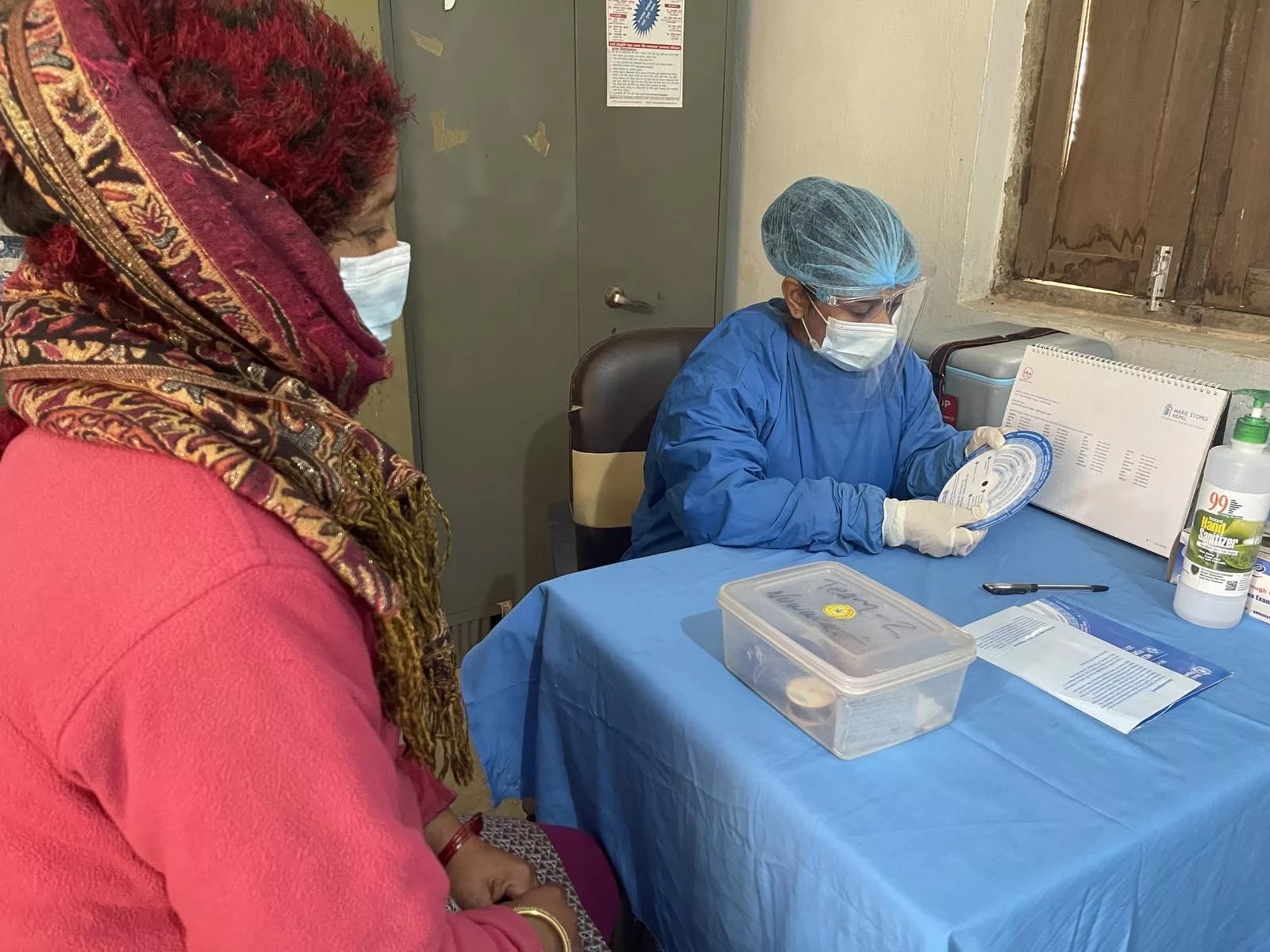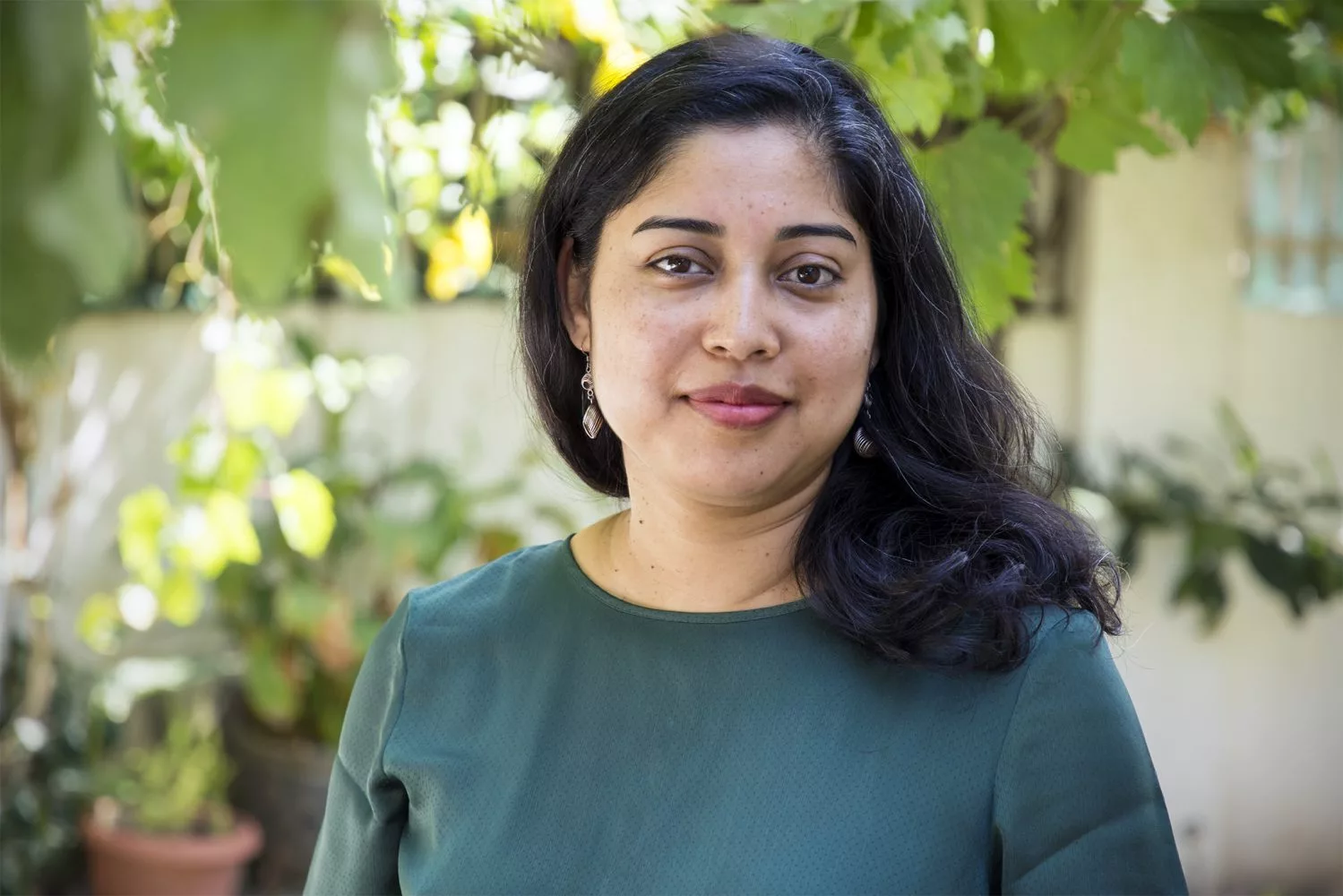
Bisna registers at the outreach camp in Bara, Nepal
75% of Nepal is covered by mountains and includes some of the most rugged and difficult terrain in the world. Providing access to essential health care can be a challenge in regular times, let alone during a pandemic. Travel restrictions and lockdowns in place due to COVID-19 meant access to family planning services was affected. As there was a lack of convenient access to family planning, women could be compelled to seek services from unsafe or unqualified providers, which increases their risk of death or disability. Support from DFAT through the RESPOND project meant Marie Stopes Nepal was able to expand access to their services during this time, such as opening an outreach camp in the south of Nepal at the end of 2021.
Below are two stories of women who benefited from family planning services at no cost with the support of DFAT, through RESPOND.
Bisna’s story
Bisna is 25, lives in Bara, and had previously learnt about her family planning options through counselling from Marie Stopes Nepal. Bisna has decided not to have children. She chose to have a tubal ligation as a permanent family planning method at the outreach clinic. With a limited income, Bisna would not have been able to afford the service if there was a cost involved. She stopped by the outreach clinic a few days later to say thank you for the painless, quick and quality service she received.
“I’m very pleased with the service from Marie Stopes Nepal. Now I can plan my future for a better life, without the fear of getting pregnant,” Bisna said.
Azra’s story
Azra (pictured above in red jacket and scarf) lives in Parsa district in the south of Nepal. She has eight children and a limited income. She wants the best quality of life for the children she already has and doesn’t want to have more.
Being of Muslim faith, it was a big step for Azra to approach Marie Stopes Nepal about family planning. The Muslim community sees children as ‘gifts of God’, and permanent family planning methods, even contraception itself, is taboo.
But Azra knew what she wanted. She had heard that Marie Stopes Nepal’s outreach team could provide her with a ‘minilap’ tubal ligation at no cost, and so she visited the outreach location. Azra would not have been able to afford this service otherwise.
“I am very happy with the service. I can now focus on giving the children I have a better quality of life”, said Azra.
While COVID-19 has brought new challenges to the community, thanks to the support of DFAT through the RESPOND project, Azra and so many women like her have been able to access essential sexual and reproductive health services to make life easier for her and her family.




